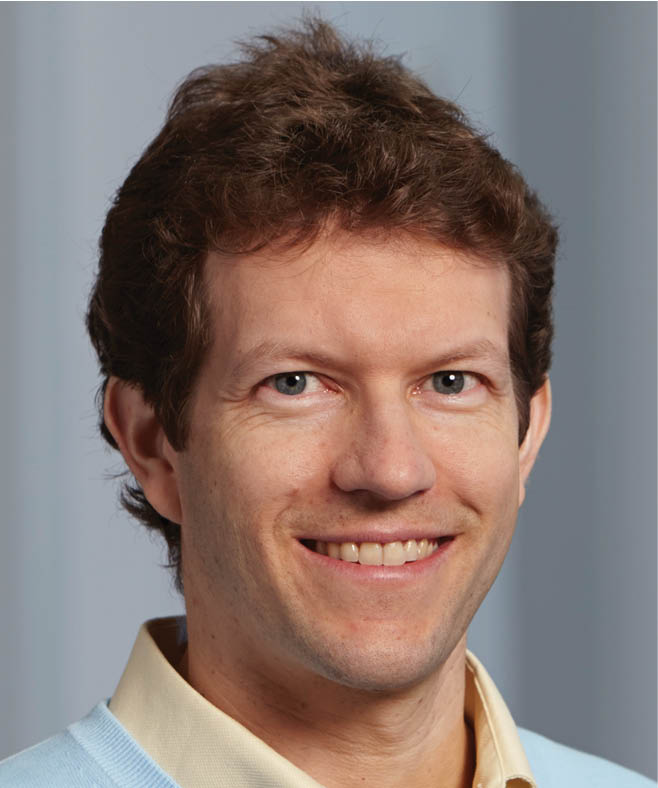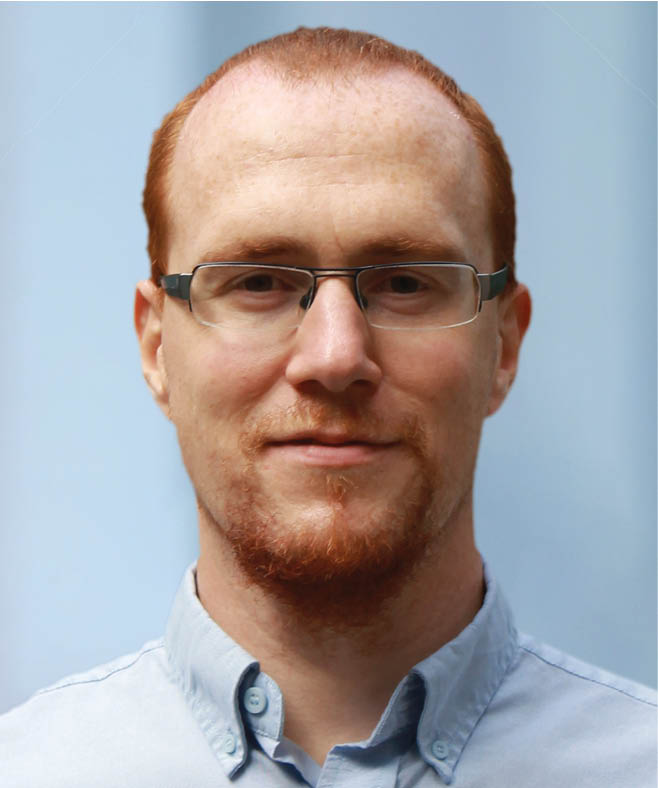Adrian Perrig und Torsten Hoefler zu IEEE Fellows ernannt
Professor Adrian Perrig (D-INFK) und Professor Torsten Hoefler (D-INFK) wurden zu IEEE Fellows ernannt. Der prestigetr?chtige Grad des IEEE Fellow wird Personen verliehen, die herausragende Leistungen in einem für den IEEE relevanten Gebiet vorzuweisen haben.
The IEEE Fellow Comittee announced the newly elevated IEEE Fellows of 2021 — amongst them are Professor Adrian Perrig and Professor Torsten Hoefler, both from the Department of Computer Science. The distinction recognises the extensive research accomplishments in their respective fields.
Adrian Perrig has been named IEEE Fellow for his contributions to network and system security. Perrig’s research in attestation has led to the new research area of software-based attestation and has had profound impact in HW attestation techniques. His TESLA protocol has shaped the field of broadcast authentication, has been widely used in industry and academia, and is today considered for the authentication of Galileo GNSS. Perrig's work on SPINS has formed the foundation for ZigBee security, which is deployed today in hundreds of millions of devices. Furthermore, his work on the SCION Internet architecture is the first inter-domain routing architecture with global deployment since BGP’s deployment in 1994.
Torsten Hoefler has been named IEEE Fellow for his contributions to large-scale parallel processing systems and supercomputers. Hoefler made significant contributions to High-Performance Computing (HPC) networking through advocacy of low-diameter topologies, routing, and communication protocols. He contributed to the network design of the NSF Blue Waters supercomputer and was a co-author of the PERCS topology paper. PERCS (Productive Easy-to-use Reliable Computing System) has, compared to state-of-the-art HPC systems, higher performance and productivity goals. Many of the design ideas found their way into modern datacenter and cloud systems. Above all, Torsten made significant contributions to HPC programming through his impact on the Message Passing Interface (MPI), such as driving the standardisation of nonblocking collectives, scalable topologies, and neighborhood collectives. He also contributed key ideas to MPI-3 Remote Memory Access. MPI is used on all supercomputers worldwide and many datacenter systems to run scientific simulations and large-scale machine learning tasks.
The grade of IEEE Fellow garners great respect in the technical community and is considered an important career achievement.
Mehr zu Adrian Perrig

Professor Adrian Perrig leitet die Network Security Group am Departement Informatik. Von 2002 bis 2012 war er Professor für Informatik an der Carnegie Mellon University, wo er von 2007 bis 2012 als Co-Direktor Carnegie Mellon's CyLab leitete. Perrigs Forschung befasst sich mit dem Aufbau sicherer Systeme – insbesondere arbeitet seine Gruppe an SCION, der sicheren Internet Architektur.
Mehr zu Torsten Hoefler

Professor Torsten Hoefler leitet die Forschungsgruppe Scalable Parallel Computing Laboratory am Department Informatik. Hoefler ist einer der international führenden Wissenschaftler im Bereich Hochleistungsrechnen. Er befasst sich insbesondere mit der Verbesserung der Benutzungseffizienz von hochgradig parallelen Systemen sowie mit zahlreichen Anwendungen in den Bereichen Wetter, Klimasimulationen und maschinellem Lernen.
?ber IEEE
IEEE ist der weltweit führende Berufsverband für fortschrittliche Technologie für die Menschheit. Mit mehr als 400.000 Mitgliedern in 160 L?ndern ist der Verband eine zentrale Instanz in den verschiedensten Gebieten, die von Luft-? und Raumfahrtsystemen, über Computer und Telekommunikation, bis hin zu biomedizinischer Technik, elektrischer Energie und Unterhaltungselektronik reichen. IEEE ver?ffentlicht 30 Prozent der Weltliteratur in den Bereichen Elektrotechnik, Elektronik und Informatik und hat mehr als 1300 aktive Industriestandards entwickelt. externe Seite Mehr